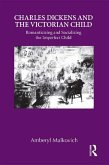How does Shakespeare's treatment of human sexuality relate to the sexual conventions and language of his times? Pre-eminent Shakespearean critic Stanley Wells draws on historical and anecdotal sources to present an illuminating account of sexual behaviour in Shakespeare's time, particularly in Stratford-upon-Avon and London. He demonstrates what we know or can deduce of the sex lives of Shakespeare and members of his family. He also provides a fascinating account of depictions of sexuality in the poetry of the period and suggests that at the time Shakespeare was writing most of his non-dramatic verse a group of poets catered especially for readers with homoerotic tastes. The second part of Shakespeare, Sex, - and Love focuses on the variety of ways in which Shakespeare treats sexuality in his plays and at how he relates sexuality to love. Wells shows that Shakespeare's attitude to sex developed over the course of his writing career, and devotes whole chapters to 'The Fun of Sex' - to how he raises laughter out of the matter of sex in both the language and the plotting of some of his comedies; portrayals of sexual desire; to Romeo and Juliet as the play in which Shakespeare focuses most centrally on issues relating to sex, love, and the relationship between them; to sexual jealousy, traced through four major plays; 'Sexual Experience'; and 'Whores and Saints'. A final chapter, 'Just Good Friends' examines Shakespeare's rendering of same-gender relationships.
Dieser Download kann aus rechtlichen Gründen nur mit Rechnungsadresse in A, B, BG, CY, CZ, D, DK, EW, E, FIN, F, GR, HR, H, IRL, I, LT, L, LR, M, NL, PL, P, R, S, SLO, SK ausgeliefert werden.









